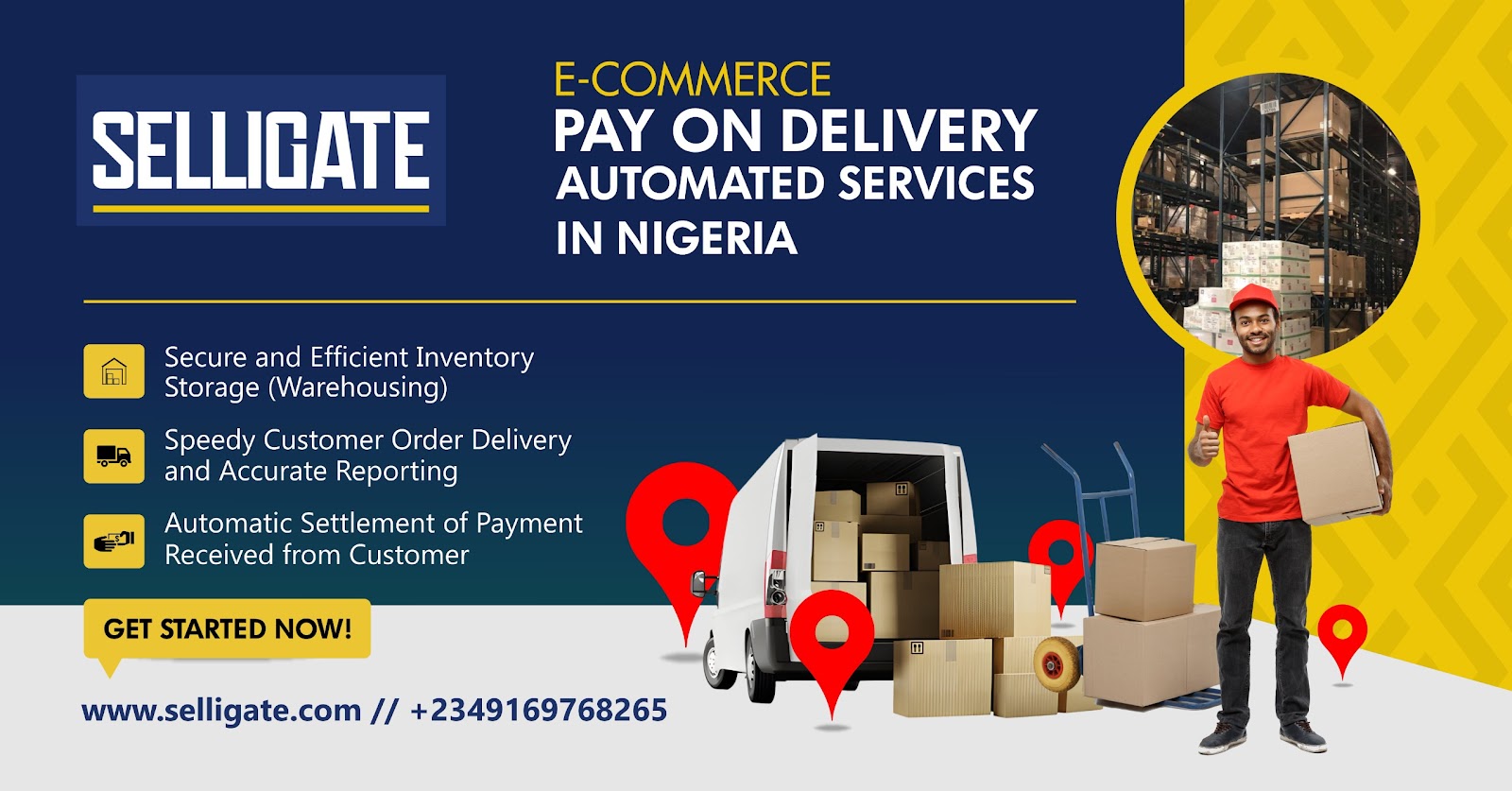
Truth be told, nobody wants to be known locally. Everybody wants to be seen on the bigger stage. This same desire applies to you as an entrepreneur, particularly entrepreneurs in the e-commerce sector.
Would you like your ecommerce to dominate a few local places, whereas you could expand your reach and even generate more revenue? No, of course.
We are sure you also fancy the idea of going global with your ecommerce. This is why we will discuss the problems limiting ecommerce companies from breaking into new regions, and the practical methods you can apply for your e-commerce business to sell in distant locations.
The Potential for E-commerce Businesses in Africa
Africa holds immense potential for e-commerce growth, driven by a rapidly expanding digital economy and a young, tech-savvy population. As internet penetration continues to rise, more Africans are gaining access to online platforms, creating a fertile ground for e-commerce businesses to flourish. According to a 2021 report by the International Finance Corporation (IFC), Africa’s e-commerce market could be worth $180 billion by 2025, representing a significant opportunity for businesses to tap into.
Nigeria, Africa’s largest economy, exemplifies this potential. With over 100 million internet users and a burgeoning middle class, the country has become a hotspot for e-commerce activity. Major players like Jumia, Konga, and PayPorte have already established a strong presence, catering to the growing demand for online shopping. In 2020, the Nigerian e-commerce market was valued at approximately $12 billion, and it is projected to continue expanding as more consumers embrace digital transactions.
The potential for e-commerce businesses in Africa is further enhanced by the continent’s youthful population. Over 60% of Africans are under the age of 25, and this demographic is increasingly tech-savvy and open to online shopping. As mobile phone penetration deepens, particularly with the proliferation of affordable smartphones, the accessibility of e-commerce platforms is set to increase, bringing millions of new customers online.
Moreover, the COVID-19 pandemic has accelerated the shift toward digital commerce across Africa. Lockdowns and social distancing measures have forced consumers to turn to online shopping, even in regions where traditional retail was previously dominant. This shift has highlighted the convenience and efficiency of e-commerce, leading to a lasting change in consumer behavior that benefits the sector.
However, capitalizing on this potential requires addressing the unique challenges of the African market. Businesses need to navigate logistical issues, varying regulatory landscapes, and trust barriers to succeed. Companies that can adapt their strategies to meet these challenges are well-positioned to reap the benefits of Africa’s growing e-commerce market.
Advantages of Expansion for E-commerce Businesses in Africa
1. Generation of More Revenue: Expanding into the African market can lead to increased sales and profits due to the large and growing customer base.
2. Discovery of New Problems and Solutions: Entering new markets allows businesses to identify unique challenges, leading to the development of innovative products and services tailored to local needs.
3. Market Diversification: Expanding into Africa helps businesses diversify their markets, reducing dependence on established markets and spreading risk.
4. First-Mover Advantage: Early entry into emerging African markets can establish brand loyalty and a strong market presence before competitors.
5. Access to Local Talent: Expansion allows businesses to tap into the local workforce, potentially leading to new insights and ideas for growth.
Factors Limiting E-commerce Businesses in Africa
1. Logistical Challenges: Poor infrastructure and complex logistics in some regions can hinder efficient delivery and operations. Also, Logistics companies in many cases, cannot deliver to certain areas. This leads to a loss of sales opportunities.
2. Limited Payment Solutions: Some customers prefer payment on delivery option. The lack of this option has hampered the growth of several e-commerce businesses that cannot offer it and has further restricted their capacity to scale revenue, thus limiting their expansion.
3. Language Barriers: E-commerce companies often stay away from selling to people from certain regions due to language barriers. The high cost of acquiring interpreters has further caused a phenomenal problem for market expansion.
4. Trust Issues: Consumers may be wary of online shopping due to concerns about fraud, quality of goods, and lack of trust in e-commerce platforms.
5. High Cost of Internet Access: In some areas, the cost of Internet access remains prohibitively high, limiting the number of potential online shoppers.
6. Currency Fluctuations: Volatile exchange rates can impact pricing and profitability for e-commerce businesses operating across multiple African markets.
How Selligate Addresses the Expansion Challenges for E-commerce Business in Africa
The expansion of e-commerce businesses in Africa is often hindered by several challenges, including logistical difficulties, limited payment solutions, regulatory complexities, and consumer trust issues. However, Selligate, a proprietary software application, has developed innovative solutions to overcome these barriers, enabling smoother operations and growth for e-commerce businesses across the continent.
1. Logistical Challenges and the Selligate Solution
One of the most significant obstacles facing e-commerce in Africa is poor infrastructure, which complicates the delivery process. Traditional logistics companies often struggle with navigating complex, underdeveloped transportation networks, leading to delays and inefficient service. Selligate addresses this issue by leveraging human distributors instead of relying solely on logistics companies. This approach ensures that orders are delivered more efficiently, even in regions with challenging infrastructure.
2. Overcoming Limited Payment Solutions
Another major barrier to e-commerce growth in Africa is the lack of widespread access to digital payment systems. Many consumers prefer or require cash on delivery as a payment method due to limited access to credit cards or mobile payment solutions. Selligate’s system integrates seamlessly with the needs of the African market by offering payment on delivery through its network of human distributors. These distributors are equipped to accept cash or online payments from customers, which are then automatically settled by Selligate’s system, ensuring that businesses receive their payments promptly and securely.
3. Building Trust with Consumers
Consumer trust is a crucial factor in the success of e-commerce. Many potential customers in Africa are hesitant to shop online due to concerns about fraud, product quality, and the reliability of delivery services. Selligate helps build trust by using human distributors who can offer a more personalized service. These distributors not only deliver the products but also serve as a point of contact for customers, addressing any concerns they might have at the time of delivery. This human interaction helps alleviate fears and builds confidence in the online shopping experience.
4. Warehousing and Speedy Delivery
In addition to solving logistical and payment challenges, Selligate offers warehousing solutions that allow e-commerce businesses to store their products closer to their customers. This proximity reduces delivery times and ensures that customers receive their orders more quickly, enhancing overall satisfaction. Selligate’s approach to warehousing and distribution is designed to minimize the typical delays associated with cross-border shipping and long-distance deliveries, which are common in Africa’s e-commerce landscape.
Read also: 7 Harsh Realities About E-Commerce (and How to Escape Them)
5. Accurate Reporting and Automatic Payment Settlement
Selligate’s proprietary software also provides e-commerce businesses with accurate reporting and analytics on their operations. This feature enables businesses to track orders, monitor inventory levels, and gain insights into customer behavior, all of which are essential for making informed decisions and optimizing operations. Additionally, the system automatically settles payments received from customers, reducing the administrative burden on businesses and ensuring that funds are processed efficiently and securely.
6. Language and Cultural Barriers through the Use of Human Distributors
One of the major challenges in expanding e-commerce across diverse regions, particularly in Africa, is the presence of language and cultural barriers. Africa is a continent with over 2,000 languages and a myriad of cultures, making effective communication and customer engagement complex. Selligate addresses this challenge by utilizing human distributors who are local residents of the areas they serve. These distributors have a deep understanding of the local language, customs, and cultural nuances, which allows them to break down communication barriers that might otherwise hinder business operations.
The advantage of having human distributors who speak the local language cannot be overstated. It ensures that customers receive clear and accurate information about products and services, which builds trust and fosters a positive relationship between the e-commerce business and the customer. Moreover, these distributors can navigate cultural sensitivities, ensuring that marketing messages and sales pitches resonate well with the local audience, thus increasing the likelihood of successful transactions.
7. Personalization of Customer Experience Through Human Distributors
In addition to overcoming language and cultural barriers, human distributors play a crucial role in personalizing the customer experience. Given their proximity to the community and their understanding of local consumer behavior, these distributors can offer tailored recommendations and advice that meet the specific needs of individual customers. This level of personalization is particularly valuable in markets where consumers may be unfamiliar with certain products or hesitant about making online purchases.
Human distributors, equipped with thorough product knowledge, can educate customers about the benefits and uses of the products they are delivering. This face-to-face interaction not only helps in alleviating any concerns the customer might have but also enhances the overall customer experience by providing a more personalized and informed service. The distributor’s ability to answer questions, provide demonstrations, and offer personalized advice fosters a deeper connection with the customer, leading to higher satisfaction rates and increased customer loyalty.
8. Building Local Partnerships
Selligate’s strategy of collaborating with local resources is instrumental in streamlining operations and building trust with customers. By partnering with local businesses, logistics providers, and service vendors, Selligate is able to create a robust and reliable distribution network that is well-integrated with the local economy. These partnerships enable Selligate to tap into existing infrastructures and expertise, which significantly reduces the logistical challenges that often plague e-commerce operations in Africa.
Local partnerships also play a key role in enhancing the credibility of Selligate in the eyes of the consumer. When customers see that a global e-commerce platform is working hand-in-hand with trusted local entities, their confidence in the service increases. This trust is further reinforced by the human distributors, who often act as the face of the brand in their communities. By employing locals who understand the region’s unique challenges and opportunities, Selligate ensures that their operations are not only efficient but also culturally sensitive and community-oriented.
Moreover, these collaborations with local resources help Selligate to adapt quickly to market changes and customer preferences. The insights gained from local partners and distributors can be leveraged to refine product offerings, improve service delivery, and respond to the evolving needs of the market.
In essence, Selligate’s use of human distributors and local partnerships represents a strategic approach to expanding e-commerce in Africa, one that is deeply rooted in understanding and integrating with the local environment.

